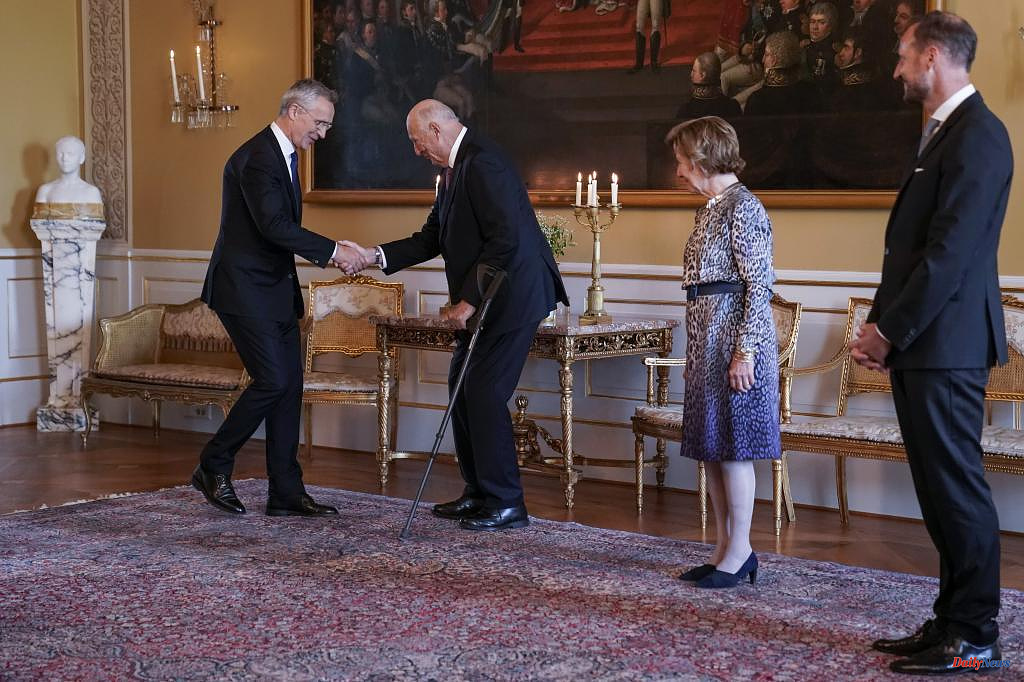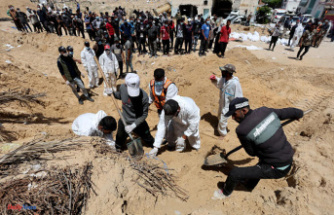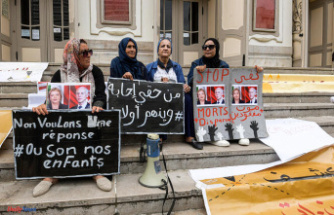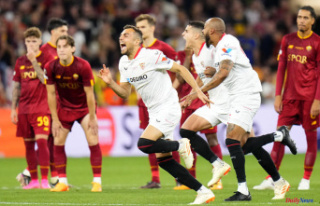The NATO foreign ministers meet this Wednesday and Thursday in an informal meeting in Oslo with 90% of the agenda focused -again- on the war in Ukraine. The meeting comes marked by the recent declarations of the general secretary, Jens Stoltenberg, on the future of the country. "Being a member in the middle of a war is not in the plans." The former Norwegian prime minister had never been so explicit. What options does kyiv have then?
That is one of the great debates that open up after 15 months of the Russian invasion. The allies start the discussion on future scenarios around the so-called security guarantees for Ukraine. In the headquarters they do not question that the country will form part of the largest defense forum in the world in the future. But it will not be in the short term, without clear borders, with one part occupied and in the middle of a war that would bring NATO into a direct clash with Russia based on Article 5, the sacred collective defense clause that says that, if one country is attacked, they are all. Although not everyone shares this vision. The East insists that without a clear and close timetable for Ukrainian accession, Russia will not stop and start another war.
In this dilemma, the transatlantic axis tries to appease Ukraine's demands regarding the calendar. There are different points of view on how to proceed. Some delegations cite the example of West Germany, which joined NATO in 1955 as a divided country. But not with the bombs falling. Others slide the Israeli model. That is, to bilaterally invest money to modernize and strengthen the Ukrainian armed forces as a preventive and deterrent measure. A strategy that would require a lot of money and a lot of time. Also, unlike Tel Aviv, kyiv does not have nuclear weapons. For this reason, all efforts are currently focused on providing financial assistance through a joint multi-year plan that involves providing non-lethal material, such as demining, medical devices, or aimed at reforming the Ministry of Defence.
On the ground, the appointment in the Norwegian capital comes at a time when the expected spring counteroffensive has not yet started. Even in NATO they are unaware of Zelenski's times, very jealous of the surprise factor and of avoiding leaks about an attack on which great pressure and high expectations are being generated. "Ukraine has taken over the times of the counteroffensive and has become more the owner of its times," allied sources explain.
The delivery of war material, especially ammunition, continues to be the top priority of Ukraine's allies. The F-16 fighters, the until now great taboo of the West in the delivery of weapons is falling. Countries like Poland and the Netherlands are creating a coalition of fighters to teach Ukrainian pilots how to fly these versatile, powerful and flexible capable aircraft. Allied sources acknowledge that its use could represent a major game changer, especially considering that Russia has not deployed its entire air force in Ukraine, although they warn that it is not a silver bullet. In any case, its delivery has no date and is not expected for this counteroffensive. Pilot training would take between six months and a year.
The Oslo meeting is also a first contact with a view to the summit that the 31 Alliance leaders will hold on July 11 and 12 in Vilnius, the Lithuanian capital. A long-awaited appointment that comes with four key points: the incorporation of Sweden, the increase in defense spending beyond 2% of gross domestic product (GDP), the appointment of the next Secretary General and future cooperation with Ukraine.
The ambition a few weeks ago was for Sweden to become the appointment in the 32nd member. But Hungary and Türkiye continue to delay their parliamentary approval. All eyes are on the next steps for the recently re-elected Recep Tayyip Erdogan. The US defense secretary, Antony Blinken, has urged Ankara to unblock the process in the coming weeks, but there is some pessimism that it will arrive in time for Vilnius.
Another of the objectives of the summit was to designate Stoltenberg's successor. The Norwegian concludes his term in October. But the succession process is going much slower than planned. Among the candidates that are being considered to be the next political leader of NATO are the Danish Prime Minister Mette Frederikssen, the Estonian Prime Minister Kaja Kallas, the Romanian President Iohannis Klaus, the Dutch Prime Minister Mark Rutte or the British Secretary of Defense Ben Wallace. .
The name of Pedro Sánchez had also sounded. In Brussels they assure that he is seen "with good eyes" because he is from the south and has been head of government, although he is not a candidate on the shortlist since he is immersed in the electoral campaign. However, the fact that the Spanish elections have been precipitated and Stoltenberg's succession process is being delayed open the door for the Spanish president to be an option with the possibility of occupying the NATO general secretary in the event of an electoral defeat. next July 23.
According to the criteria of The Trust Project












